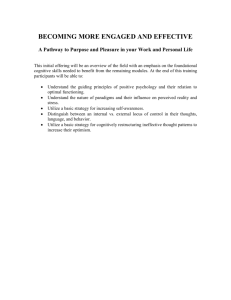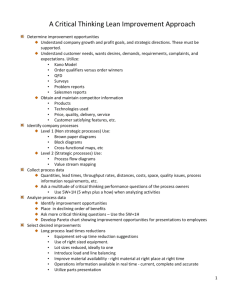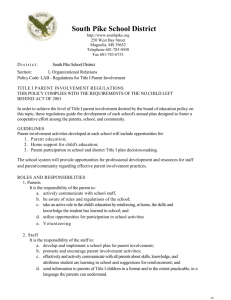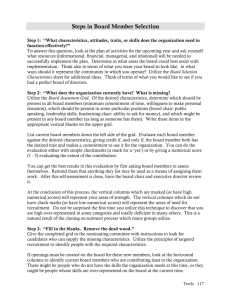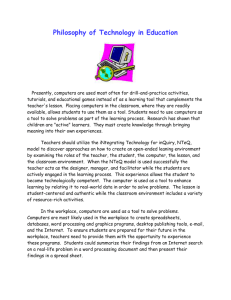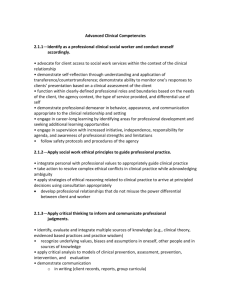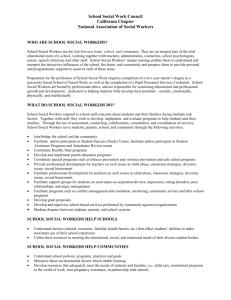Utilize: Bureaucratic or Distinct?
advertisement
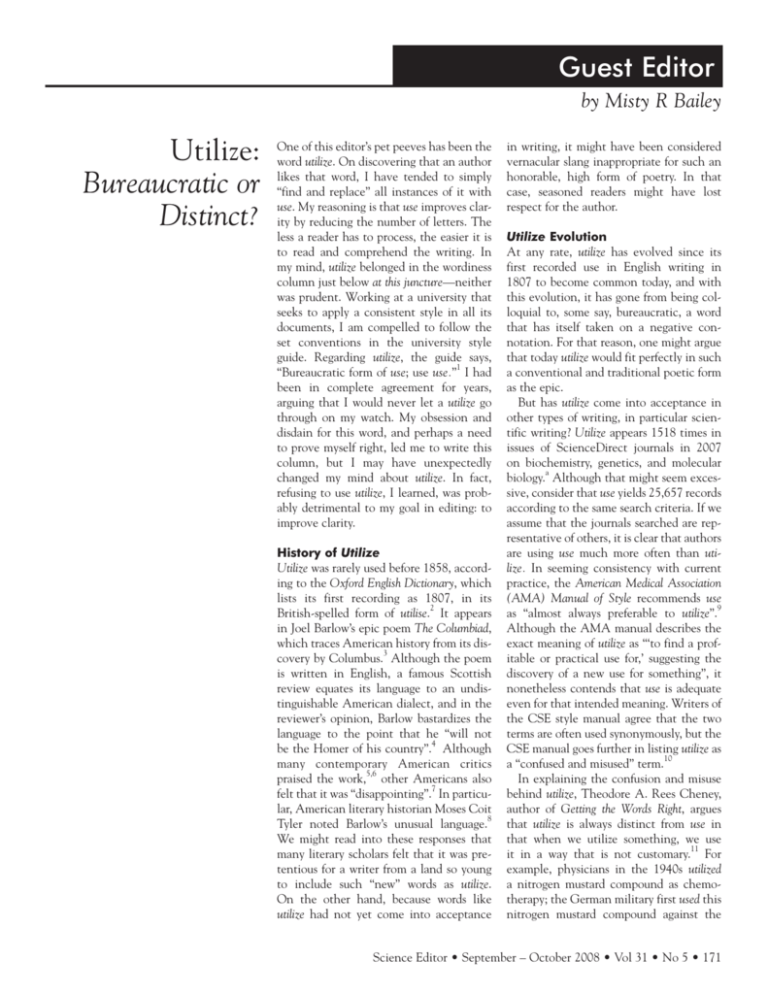
Guest Editor by Misty R Bailey Utilize: Bureaucratic or Distinct? One of this editor’s pet peeves has been the word utilize. On discovering that an author likes that word, I have tended to simply “find and replace” all instances of it with use. My reasoning is that use improves clarity by reducing the number of letters. The less a reader has to process, the easier it is to read and comprehend the writing. In my mind, utilize belonged in the wordiness column just below at this juncture—neither was prudent. Working at a university that seeks to apply a consistent style in all its documents, I am compelled to follow the set conventions in the university style guide. Regarding utilize, the guide says, “Bureaucratic form of use; use use.”1 I had been in complete agreement for years, arguing that I would never let a utilize go through on my watch. My obsession and disdain for this word, and perhaps a need to prove myself right, led me to write this column, but I may have unexpectedly changed my mind about utilize. In fact, refusing to use utilize, I learned, was probably detrimental to my goal in editing: to improve clarity. History of Utilize Utilize was rarely used before 1858, according to the Oxford English Dictionary, which lists its first recording as 1807, in its British-spelled form of utilise.2 It appears in Joel Barlow’s epic poem The Columbiad, which traces American history from its discovery by Columbus.3 Although the poem is written in English, a famous Scottish review equates its language to an undistinguishable American dialect, and in the reviewer’s opinion, Barlow bastardizes the language to the point that he “will not be the Homer of his country”.4 Although many contemporary American critics praised the work,5,6 other Americans also felt that it was “disappointing”.7 In particular, American literary historian Moses Coit Tyler noted Barlow’s unusual language.8 We might read into these responses that many literary scholars felt that it was pretentious for a writer from a land so young to include such “new” words as utilize. On the other hand, because words like utilize had not yet come into acceptance in writing, it might have been considered vernacular slang inappropriate for such an honorable, high form of poetry. In that case, seasoned readers might have lost respect for the author. Utilize Evolution At any rate, utilize has evolved since its first recorded use in English writing in 1807 to become common today, and with this evolution, it has gone from being colloquial to, some say, bureaucratic, a word that has itself taken on a negative connotation. For that reason, one might argue that today utilize would fit perfectly in such a conventional and traditional poetic form as the epic. But has utilize come into acceptance in other types of writing, in particular scientific writing? Utilize appears 1518 times in issues of ScienceDirect journals in 2007 on biochemistry, genetics, and molecular a biology. Although that might seem excessive, consider that use yields 25,657 records according to the same search criteria. If we assume that the journals searched are representative of others, it is clear that authors are using use much more often than utilize. In seeming consistency with current practice, the American Medical Association (AMA) Manual of Style recommends use as “almost always preferable to utilize”.9 Although the AMA manual describes the exact meaning of utilize as “‘to find a profitable or practical use for,’ suggesting the discovery of a new use for something”, it nonetheless contends that use is adequate even for that intended meaning. Writers of the CSE style manual agree that the two terms are often used synonymously, but the CSE manual goes further in listing utilize as a “confused and misused” term.10 In explaining the confusion and misuse behind utilize, Theodore A. Rees Cheney, author of Getting the Words Right, argues that utilize is always distinct from use in that when we utilize something, we use it in a way that is not customary.11 For example, physicians in the 1940s utilized a nitrogen mustard compound as chemotherapy; the German military first used this nitrogen mustard compound against the Science Editor • September – October 2008 • Vol 31 • No 5 • 171 Guest Editor continued British in 1917.12 Likewise, writing that the investigators could not use the mass spectrophotometer suggests that they were incapable because of a lack of know-how. However, writing that the investigators could not utilize the mass spectrophotometer suggests that although they knew the technique and equipment, it did not prove useful in their specific research. In those instances, the word almost in AMA’s “almost always preferable” recommendation takes on enormous importance. Therefore, I have decided to alter my zero-tolerance style to consider clarity when determining when to use use and when to use utilize. After all, an editor’s primary goal is to improve clarity. If improving clarity means using a longer word, so be it. To that end, it would be revealing to examine the aforementioned scientific articles to determine how often utilize could have been replaced with use without losing intended meaning and vice versa—how often utilize would have been more appropriate than use. Notes Methods: Full-text search of only 2007 and only research articles. For use, quotation marks were used as Boolean operators like this: “_use_” (underscores rep- a resent spaces). This approach was used on recommendation from ScienceDirect support to eliminate such words as refuse, which includes use but would provide false results. References 1. University of Tennessee Creative Services Office. UT editorial style guide. 27 April 2006. [Internet] [cited 2008 January 22]. Available from: pr.tennessee. edu/identity/downloads/UTEditorialGuide.pdf. 2. Utilize. Def. 1. Oxford English dictionary online. 2nd ed. 1989. [Internet] [cited 2008 January 16]. Available from: dictionary.oed.com. 3. Barlow J. The Columbiad: a poem. London: Richard Taylor; 1809. 4. The Columbiad: a poem [review]. Edinburgh Rev. 1809-1810;15:24-40. 5. The Columbiad. Am Regist Gen Repository Hist Polit Sci. 1807;1:217-220. In: American Periodicals Series. Knoxville (TN): ProQuest. [Internet] [cited 2008 February 26]. Available from: proquest.umi.com. Document ID 409541671. 6. Barlow’s Columbiad; a national poem in honour of our Western hemisphere. Med Repository Orig Essays Intell Relative to Phys Surg Chem Nat Hist.1807;5:71-72. In: American Periodicals Series. Knoxville (TN): ProQuest. [Internet] [cited 2008 February 26]. Available from: proquest.umi.com. Document ID 675817572. 7. Loschky H. The Columbiad tradition: Joel Barlow 172 • Science Editor • September – October 2008 • Vol 31 • No 5 and others. Providence (RI): Books at Brown. 1967;21:197-206. 8. Schorer CE. Moses Coit Tyler on Joel Barlow’s language. Am Speech. 1950;25:154-156. 9. Iverson C, Christiansen S, Flanagin A, Fontanorosa PB, Glass RM, Gregoline B, Lurie SJ, Meyer HS, Winker MA, Young RK, et al. AMA manual of style: a guide for authors and editors. 10th ed. New York: Oxford University Press; 2007. p 404. 10. Council of Science Editors, Style Manual Committee. Scientific style and format: the CSE manual for authors, editors, and publishers. 7th ed. Reston (VA): The Council; 2006. p 92, 96. 11. Cheney TAR. Getting the words right: how to revise, edit & rewrite. Cincinnati (OH): Writer’s Digest Books; 1983. 12. Ben-Ari ET. Dual purpose: some cancer therapies used to treat autoimmune diseases. J Natl Cancer Inst. 2004;96:577-579. MISTY R BAILEY is the technical communication specialist at the University of Tennessee College of Veterinary Medicine.
